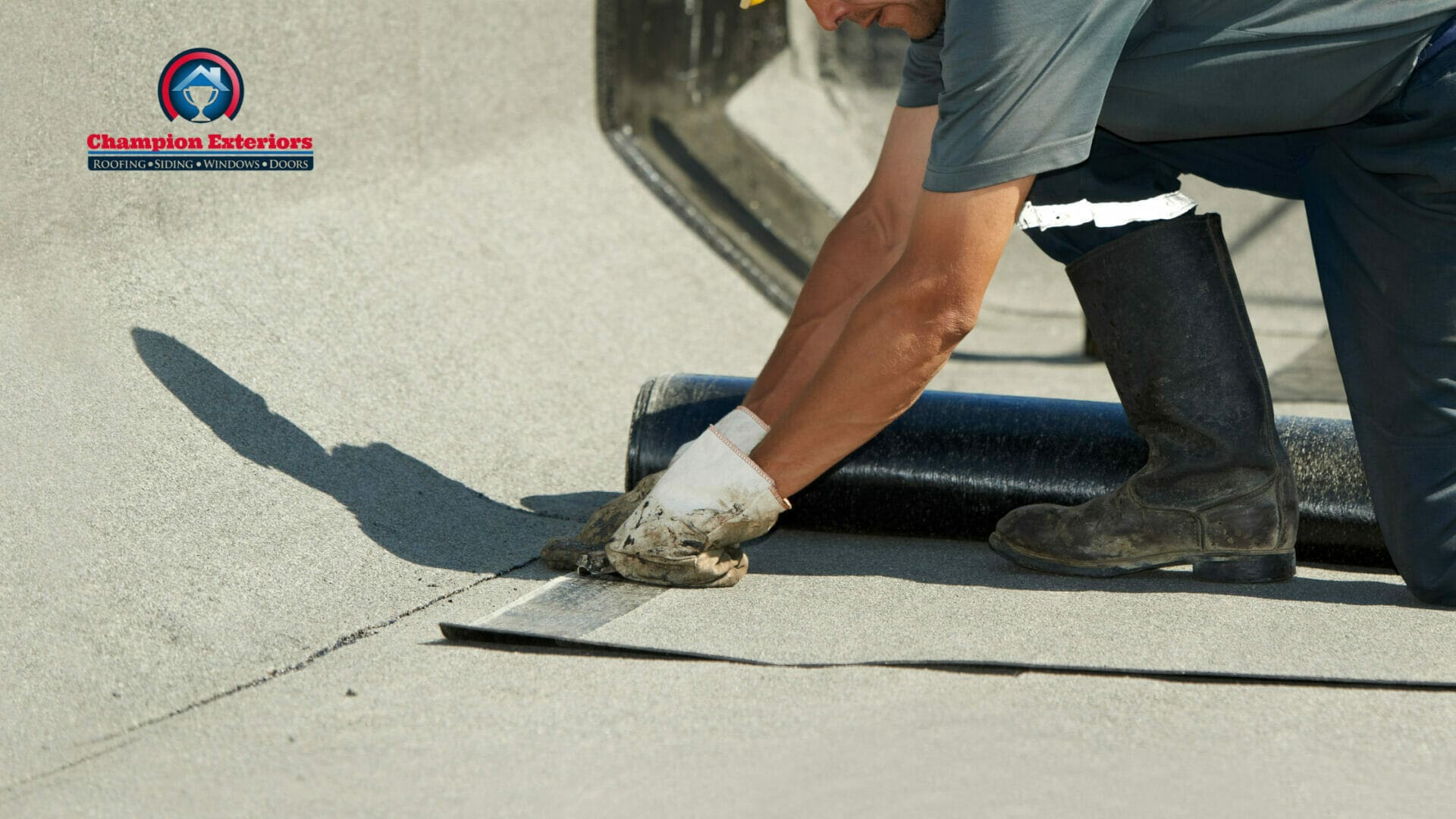Professional commercial roof installation is expensive because of how complex these roofing systems can be. This is one of the reasons why they cost more than residential roofs. Another reason is how difficult it can be to find the right roofer for your business, as hundreds of roofers are on the market.
The total commercial roofing cost depends on various factors, including those mentioned in this blog. To clearly understand the exact installation or replacement cost, read the blog till the end. We’ve also included how much time commercial roofing takes based on the type of roof you want to be installed.
What Are Commercial Roofs?
A commercial roof is a type of roofing system that is designed to protect large buildings such as offices, warehouses, and retail spaces. These roofs are typically designed to withstand heavy foot traffic, weather conditions, and other factors that can cause damage to a building.
Additionally, commercial roofs are typically larger than residential roofs, requiring more materials and specialized installation techniques. This is because many commercial roofs accommodate HVAC units, solar panels, or other equipment that is not often found on residential buildings.
However, commercial roofs are made of different materials than residential ones, which commonly have asphalt shingles. Commercial roofs are generally metal, BUR roofs, modified bitumen, single-ply membrane, or green roofs. Ultimately, the choice of roofing material for a commercial building will depend on factors such as budget, climate, and the specific needs of the building.
Factors That Affect Cost
There are many factors you need to consider before installing a commercial roof. To help, we’ve provided the following list of the factors you should know before handing over your roofing project to a professional roofer.
Size And Complexity Of The Roof
The size and complexity of a commercial roof significantly affect the cost of the project.
For example, a flat roof is typically less expensive to install than a sloped or multi-level roof. Additionally, a roof with multiple skylights, vents, or other protrusions will require more materials and labor, resulting in a higher cost.
Materials Used
The materials used for a commercial roof also impact the cost. If you use high-quality, long-lasting, and durable materials, they can cost you more to install, but they are reasonably less expensive than low-quality materials. As low-quality materials may need frequent replacement and repair, they are one of the major factors that affect the installation cost.
Location
The location of the commercial building also plays a role in the cost of a roofing project. Materials and labor costs vary from region to region, and factors such as weather and local building codes can also affect the cost. For example, a roof in a location with high winds or hurricanes may require additional reinforcement, or particular roofing materials, resulting in a higher cost.
Labor Costs
The labor cost is another important factor to consider when budgeting for a commercial roof. The cost of labor can vary depending on the region and the skill level of the roofing professionals. Additionally, the complexity of the roof can also affect labor costs, as more complex roofs will take longer to install and require more skilled professionals.
Adding Additional Features
Including additional features such as insulation or solar panels can also affect the cost of a commercial roof. While insulation helps to improve energy efficiency and can save on heating and cooling costs in the long run, installing installation adds to the total roofing estimate. Having solar panels installed will also add to the cost of installation, even though they may later offset their own cost by producing enough electricity.
Average Costs For Different Types Of Commercial Roofs
Average costs for different types of commercial roofs are as follows:
Built-Up Roof (BUR)
A built-up roof, also known as a BUR roof or tar-and-gravel roof, is a popular choice for commercial buildings. It is comprised of layers of asphalt and gravel, and typically they cost between $5 and $10 per square foot. However, the costs can vary depending on the size and complexity of the roof, as well as the cost of materials and labor in the region.
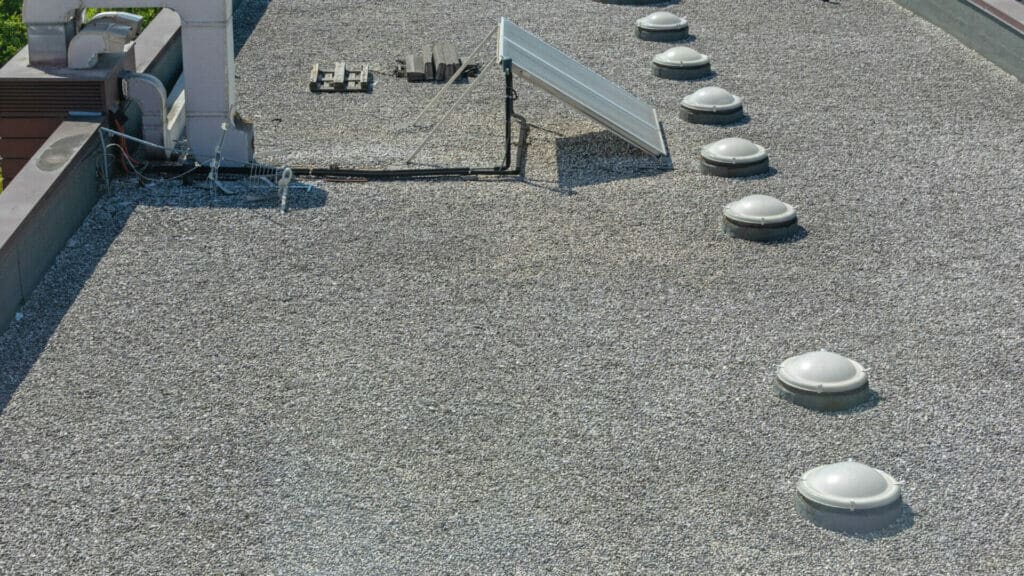
Single-Ply Roofs
Single-ply roofing systems, such as EPDM or TPO, are often used in commercial applications. These materials are lightweight, durable, and easy to install. The average cost for a single-ply commercial roof costs between $5 and $8 per square foot but can vary depending on the type of material used and the size and complexity of the roof.
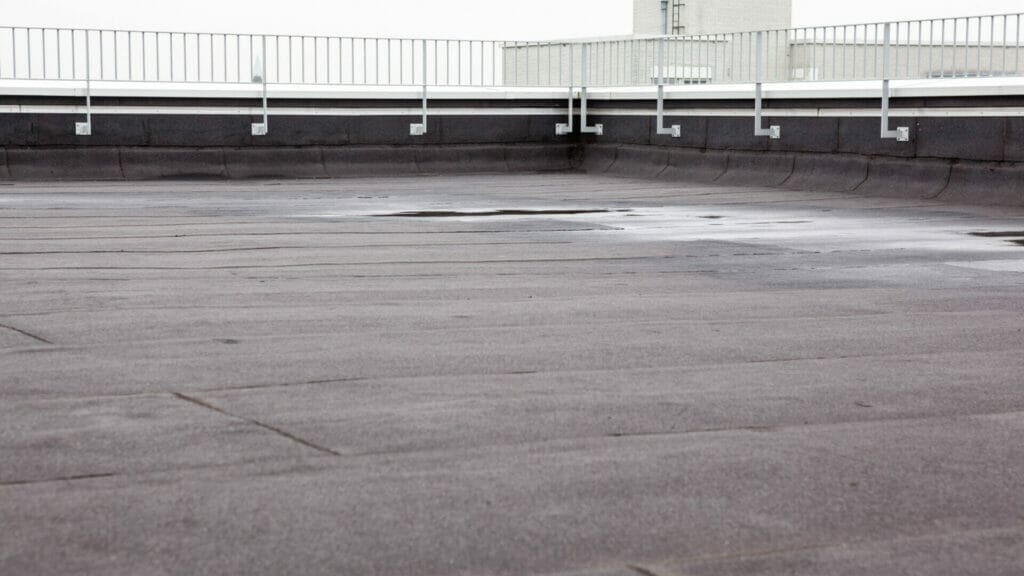
Metal Roof
Metal roofs are becoming an increasingly popular choice for commercial buildings due to their durability and energy efficiency. The costs of a metal roof can vary greatly depending on the type of metal used, but on average, it ranges between $7 to $12 per square foot.
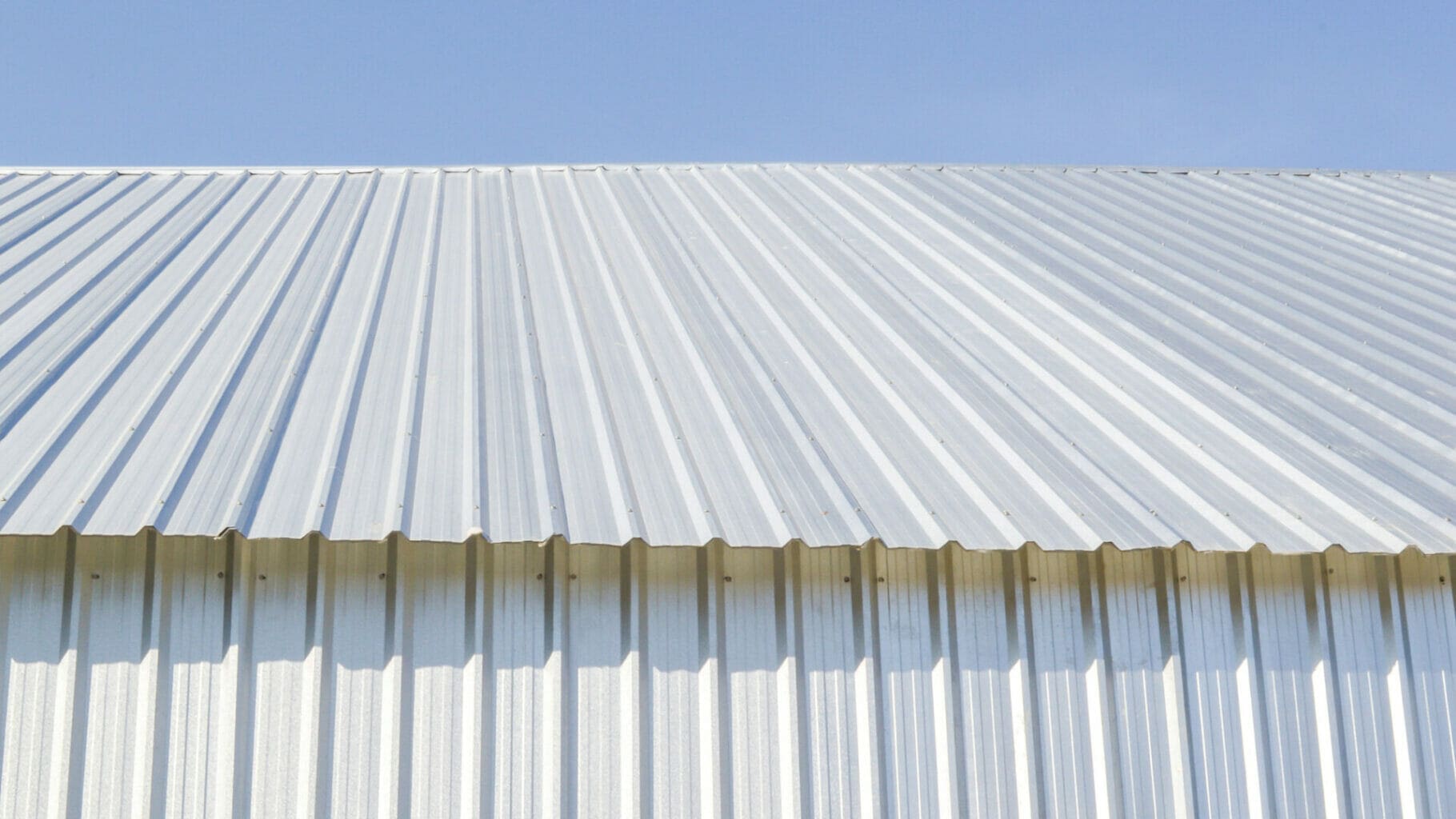
Green Roof
Green roofs, which are covered in vegetation, are becoming more popular in commercial applications. They offer many benefits, including insulation, stormwater management, and improved air quality. The cost of green roofs will vary depending on the type of vegetation used, the drainage systems needed, and the roof’s size. On average, the cost of green roofs ranges between $15 to $25 per square foot.
Please note that the above costs are estimates and can vary based on the location, roof complexity, and materials used. Getting a quote from a local roofing contractor is always recommended to get an accurate cost for your project.
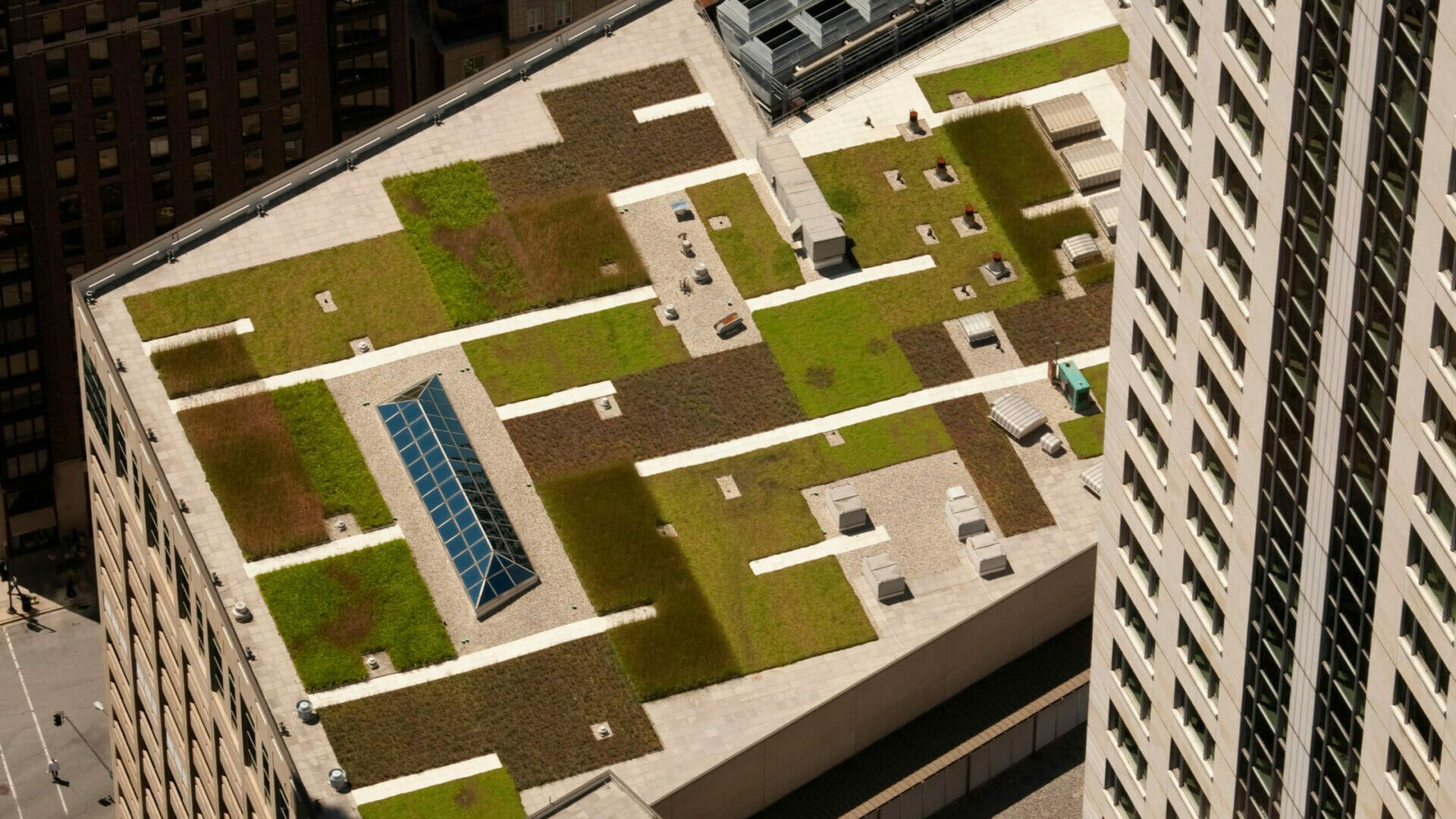
How Long Does It Take To Install Commercial Roofs?
The time it takes to install a commercial roof depends on several factors, such as the size of the roof, the type of material used, and the complexity of the project.
For example,
Single-Ply Membrane: A flat roof made of a single-ply membrane can take a day or around a week to install, depending on the size of the roof and the number of workers on the job. A metal roof can take a few days to a week to install, again depending on the size of the roof and the number of workers on the job.
Built-Up Roofing (BUR) System: This roofing system involves applying multiple layers of asphalt and gravel, which can take several days to a week to install.
Green Roof: This involves installing a layer of soil and plants on top of the roof, which can take several days or weeks to install, but it can take longer if the soil or plants need to be brought in from a separate location.
It’s worth noting that these are just rough estimates, and actual installation time will vary depending on factors such as location, labor costs, and the specific type of material used. It is best to consult with a professional roofing contractor to get an accurate estimate for the specific type of roofing material you are considering.
Read our blog to understand how off-season commercial roof replacement works.
Conclusion
If you are a business owner you understand how crucial it is for you to install a quality roof. Commercial roof installation requires a professional roofing contractor due to complexities that make it different than a residential roof. In order to have a sustainable roof that keeps both your business and employees safe, you must contact professional, experienced, and skilled roofing company.
If you are considering installing a new roof or replacing an old one, you can contact Champion Exteriors. Our company and team of professionals specialize in many roofing services, including commercial and residential roof installation, replacement, inspection, and repair. You can call the team at (888)-926-1474, and we will be happy to offer you a free consultation.


